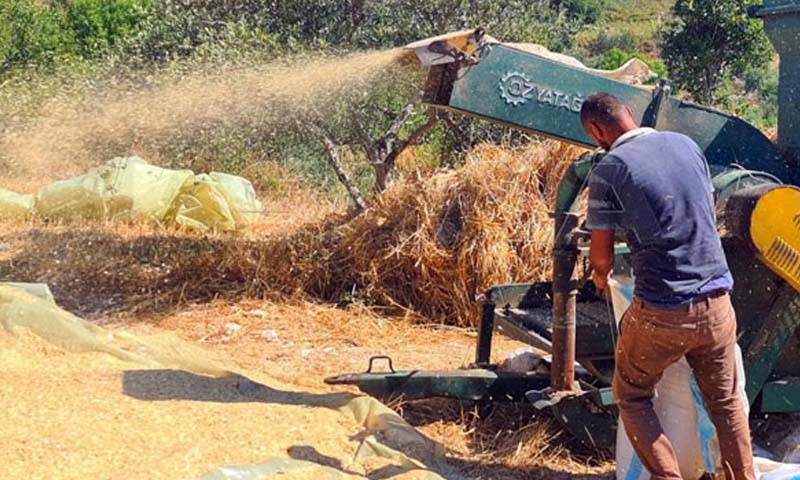Abdul Latif al-Amin, director general of the Syrian Grain Foundation, said that his organization has received 500,000 tons of wheat from farmers, explaining that this amount does not cover local demand.
Amin added that, although the amount of wheat delivered this year is higher than last year’s quantity of about 336,000 tons, the amount received can only cover the next three months of demand.
According to Amin, Aleppo governorate produced the highest amount of wheat with 167,000 tons. Hama followed this amount with 131,000 tons, Homs with 46,000 tons, and Deir ez-Zor with 35,000 tons.
Most of the wheat delivered was second and third class; the yield of first-grade wheat was low.
Read Also: Syrian Ship Transports Stolen Wheat from Ukraine Across Bosphorus
Regime-controlled areas need about 2.2 million tons of wheat per year, Amin said, noting that imports have been used to make up the shortfall.
According to Amin, around 1 trillion Syrian pounds of wheat have been purchased from farmers.
On Thursday, the Syrian regime government agreed to grant the Syrian Grain Foundation a loan of 100 billion Syrian pounds to finance the purchase of wheat for this year, to strengthen the strategic wheat reserve.”
On July 4th, Amin said that the foundation has concluded contracts to import “almost enough” wheat until the start of next year’s wheat season. He noted that the shortage of wheat is compensated by imports from Russia and the Black Sea countries. When required, the foundation concludes swap contracts to import flour instead of wheat as an emergency solution.
On May 14th, the Syrian regime’s government set the purchase price of 1 kg of wheat from farmers in “safe” areas (regime spheres of influence) at 1,700 Syrian pounds, with a bonus of 300 pounds (about 50 US cents), depending on the exchange rate of the Syrian pound at the time.
The regime government stated that it would grant a reward of 400 liras for each kilogram delivered from “unsafe” areas (beyond the regime’s control) to a kilogram price of 2,100 pounds.
In 2021, Syria recorded its lowest wheat production rate in 50 years due to high prices for inputs and poor economic conditions, according to a United Nations Food and Agriculture Organization report.
This article was translated and edited by The Syrian Observer. The Syrian Observer has not verified the content of this story. Responsibility for the information and views set out in this article lies entirely with the author.


